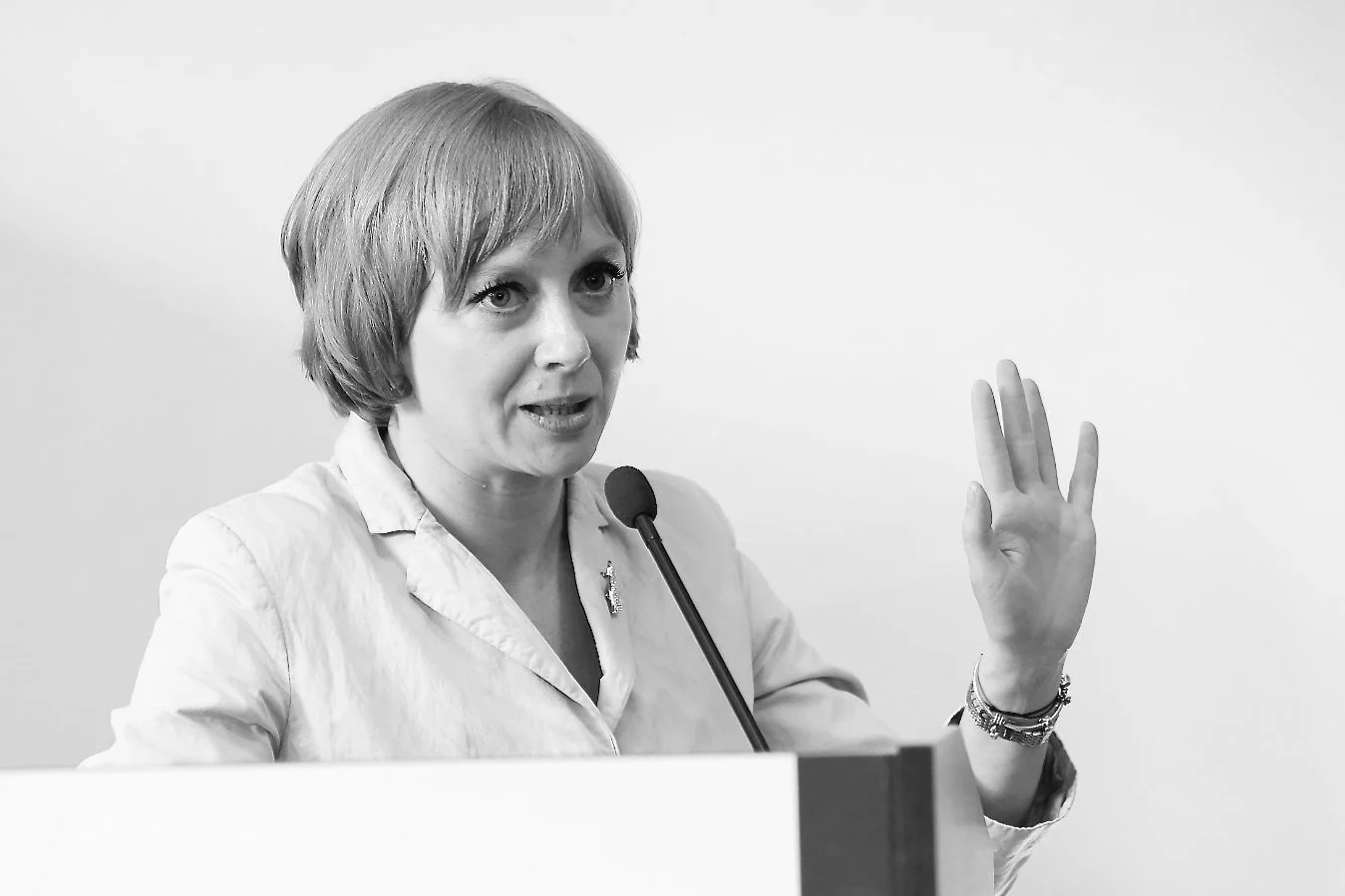Romania: Emilia Șercan Hit With Wave Of Online Attacks For Reporting On Plagiarism By PM Ciucă
Location: Romania, Bucharest
Date: April 6, 2022Photo Credit: PressOne
Investigative journalist Emilia Șercan has been subject to online threats and attacks aiming to silence her, following the publication of an article revealing plagiarism by Romanian Prime Minister Nicolae Ciucă’s. Emilia was threatened in three separate instances and she lodged complaints with the Bucharest Police Criminal Investigation Service for each of them. Instead of seeing her complaints resolved, documents the journalist submitted to the police as evidence were leaked causing her further distress. The Coalition For Women In Journalism stands in solidarity with Emilia and condemns the abuse leveled at her clearly with the aim to silence her investigative work.
Emilia publicly denounced the defamation and intimidation to which she has been subjected since January 18, 2022, after the publication of her report in which she revealed that Romanian PM Nicolae Ciucă’s PhD thesis was plagiarized.
“I have made this decision because this time the key player is the Romanian state itself: a piece of evidence I provided to the Romanian Police, with the end goal of identifying someone who had perpetrated a violation of privacy, was leaked from the criminal file that very same day and became the basis of an extensive kompromat operation,” Emilia wrote in a detailed statement about online threats and legal steps she took in 45 days.
Since 2015, the journalist has been publishing investigative pieces about plagiarists who hold key positions in high offices including in the police, the army, the justice system, in intelligence services, the government and parliament, on online platform PressOne.
The journalist was sent threats on January 19, February 2, and February 16, 2022, and she filed criminal complaints with the police for each instance.
In the latest instance, Emilia was sent five personal photos from 20 years ago taken by her fiance at the time in the apartment where they used to live.
The following day, the journalist called the police deputy commissioner, who was already in charge of the two prior threats, and asked her if the crimes constituting the theft of her photos and uploading of them on adult websites were within the competence of the Criminal Investigation Department. “Her answer was affirmative and she told me she was waiting for me at the office to file a new criminal complaint – the third one in under a month,” said Emilia.
After being asked by the deputy commissioner about the name of the account that had sent her the message with pictures, Emilia sent her screenshots via WhatsApp, displaying the person’s name and the messages and photos she was sent.
“One and a half hours later, I arrived at the Criminal Investigation Service, where I filed a new criminal complaint regarding the theft of the five photos and their publication on adult websites,” the journalist wrote. “The following morning, on February 18, a Google alert notified me that the screenshot, which I had submitted as evidence in a criminal case, and my stolen personal photos had been posted to a website registered in the Republic of Moldova,” she added.
Romanian Minister of Internal Affairs Lucian Bode facilitated a meeting between Emilia and head of police Quaestor Benone Matei, who assured the journalist that the authorities would do everything in their power to discover the circumstances through which the screenshot ended up on a Moldovan website. However, thus far there is no indication that such an investigation ever took place, according to Emilia.
The journalist also requested independent expertise reports from three international institutions which specialize in detecting cybersecurity breaches and evidence of spying and hacking, namely, Amnesty Tech, Citizen Lab and Bitdefender.
“According to the three institutions’ experts, no evidence of spyware or hacking that would have led to the theft of my screenshot was discovered on my phone within the 18 hour window from when it was taken (February 16, 8.45 PM) to when it was published (February 17, 2.51 PM),” she wrote.
In her 15-year career Emilia has been on the receiving end of several intimidation and harassment attempts including death threats. “The [latest] threats I have received since January 2022 and the leaking of evidence from a criminal case are further attempts to silence me and force me into abandoning my work,” she wrote.
The Coalition For Women In Journalism is extremely concerned for journalist Emilia Șercan’s wellbeing and demands immediate action from the authorities. It is deeply worrying that facts and evidence submitted to the police by the journalist was leaked and published. We call on the Romanian authorities to immediately take action against those targeting the journalist and hold an internal inquiry to identify the individuals responsible for the leak. Delays in response by the authorities in cases of violations against women journalists only further threaten their safety. All members of the press must feel safe to report freely and independently.
The Coalition For Women In Journalism is a global organization of support for women journalists. The CFWIJ pioneered mentorship for mid-career women journalists across several countries around the world and is the first organization to focus on the status of free press for women journalists. We thoroughly document cases of any form of abuse against women in any part of the globe. Our system of individuals and organizations brings together the experience and mentorship necessary to help female career journalists navigate the industry. Our goal is to help develop a strong mechanism where women journalists can work safely and thrive.
If you have been harassed or abused in any way, and please report the incident by using the following form.


